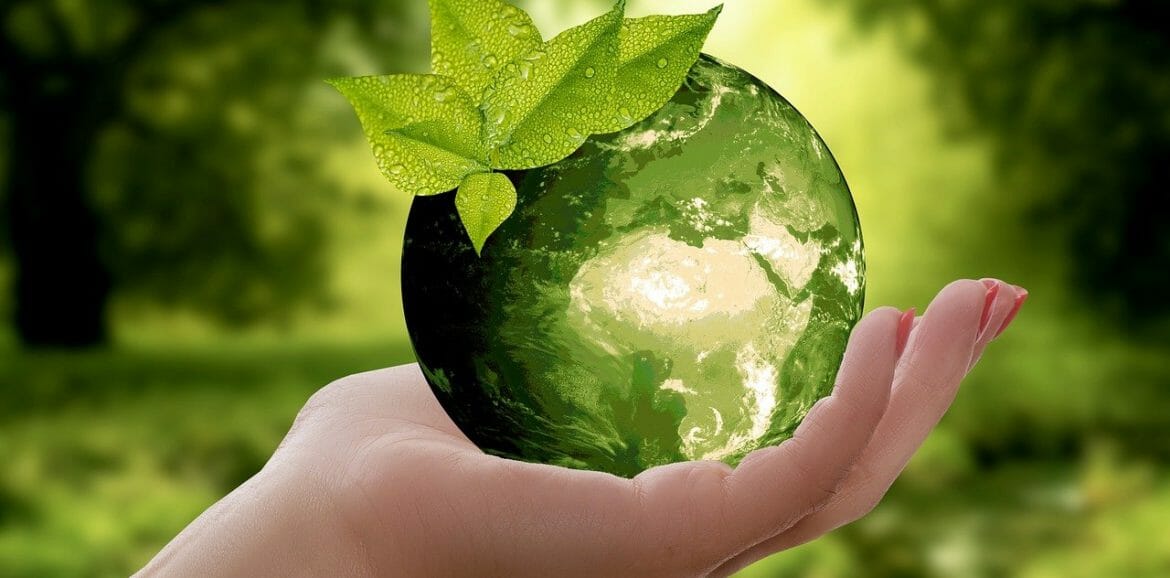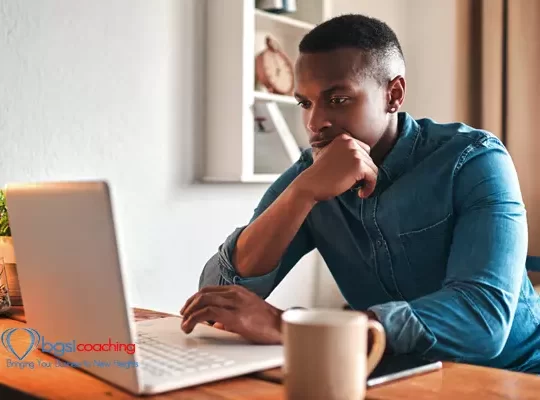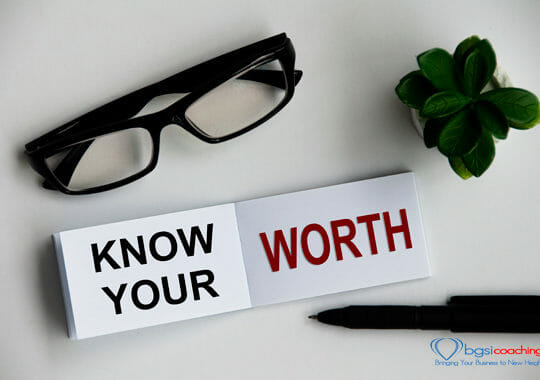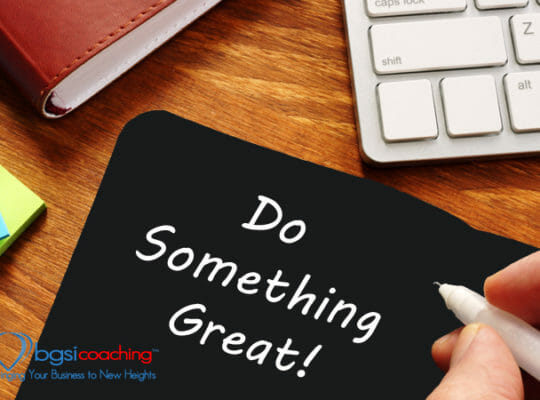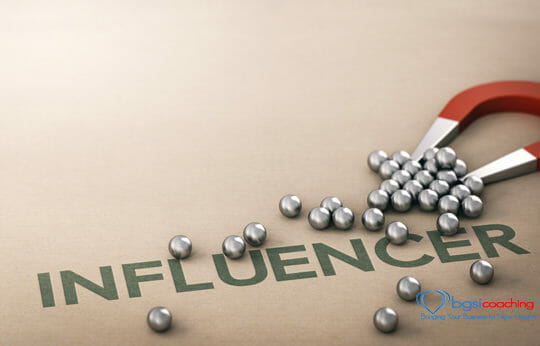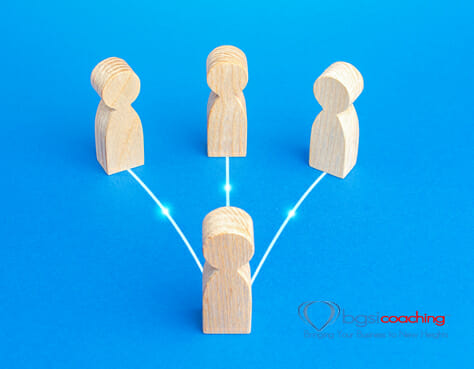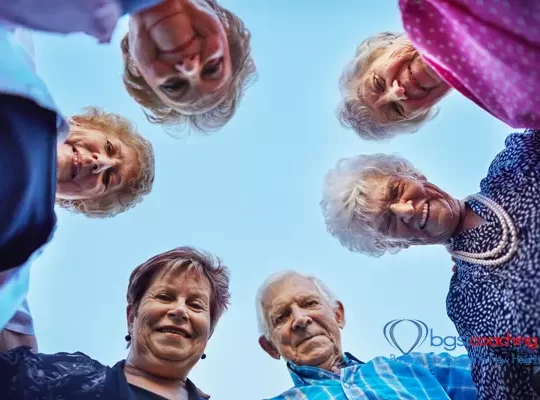If you’ve been paying attention to the news about the garbage building up in the oceans, climate change, and global warming, etc., you know that we need to do something about the way that we look at the world and how we use the products that we use daily in that process.
But what do we do when we can only get the food and beverage products that we need in large, unrecyclable packaging or plastic packaging that will take 500-1000 years to degrade? Enter my guest, Jared Raszewski, and his company, DisSolves, which makes dissolvable plastic-like packaging that dissolved in just about any liquid so you can have your hot cocoa or coffee without needing plastic cups or packaging!
In this program, Jared and I talk a lot about sustainability and how simple innovations like Jared’s product can have a long-lasting impact on our environment.

Life & business intersect in many places. After all, we cannot have a business without looking at the human component of business.
This podcast with Jennifer R Glass, CEO of Business Growth Strategies International & BGSICoaching.com is all about the meaning of life and business & the interesting ways they intersect. The show is for entrepreneurs and aspiring entrepreneurs on the search for what makes people successful and how to get there themselves.
Listen in as Jennifer & her guests dive deep into what makes people tick & how they make their businesses work for the betterment of others.
If you’ve been paying attention to the news about the garbage building up in the oceans, climate change, and global warming, etc., you know that we need to do something about the way that we look at the world and how we use the products that we use daily in that process.
But what do we do when we can only get the food and beverage products that we need in large, unrecyclable packaging or plastic packaging that will take 500-1000 years to degrade? Enter my guest, Jared Raszewski and his company, DisSolves, which makes dissolvable plastic-like packaging that dissolved in just about any liquid so you can have your hot cocoa or coffee without needing plastic cups or packaging!
On this program, Jared and I talk a lot about sustainability and how simple innovations like Jared’s product can have a long-lasting impact on our environment.
About Jared: Jared Raszewski is the Founder and CEO of DisSolves, which sells edible packaging that dissolves in water. He graduated from the University of Pittsburgh with a major in chemical engineering and minors in chemistry and economics. While at Pitt, he led independent research into the use of edible, bio-polymers in packaging. His research moved from the lab to his kitchen and eventually grew into DisSolves. DisSolves is headquartered in Jared’s hometown of Pittsburgh, and his goal for the company is to produce a sustainable packaging that does not require consumers to compromise on functionality and convenience. Outside of work, Jared enjoys tending to his collection of cacti and tropical plants and taking long walks outside while listening to audiobooks (Catch-22 is his favorite).
You may learn more about Jared and DisSolves at dissolves.net and connect with Jared on LinkedIn at https://www.linkedin.com/in/jared-raszewski/
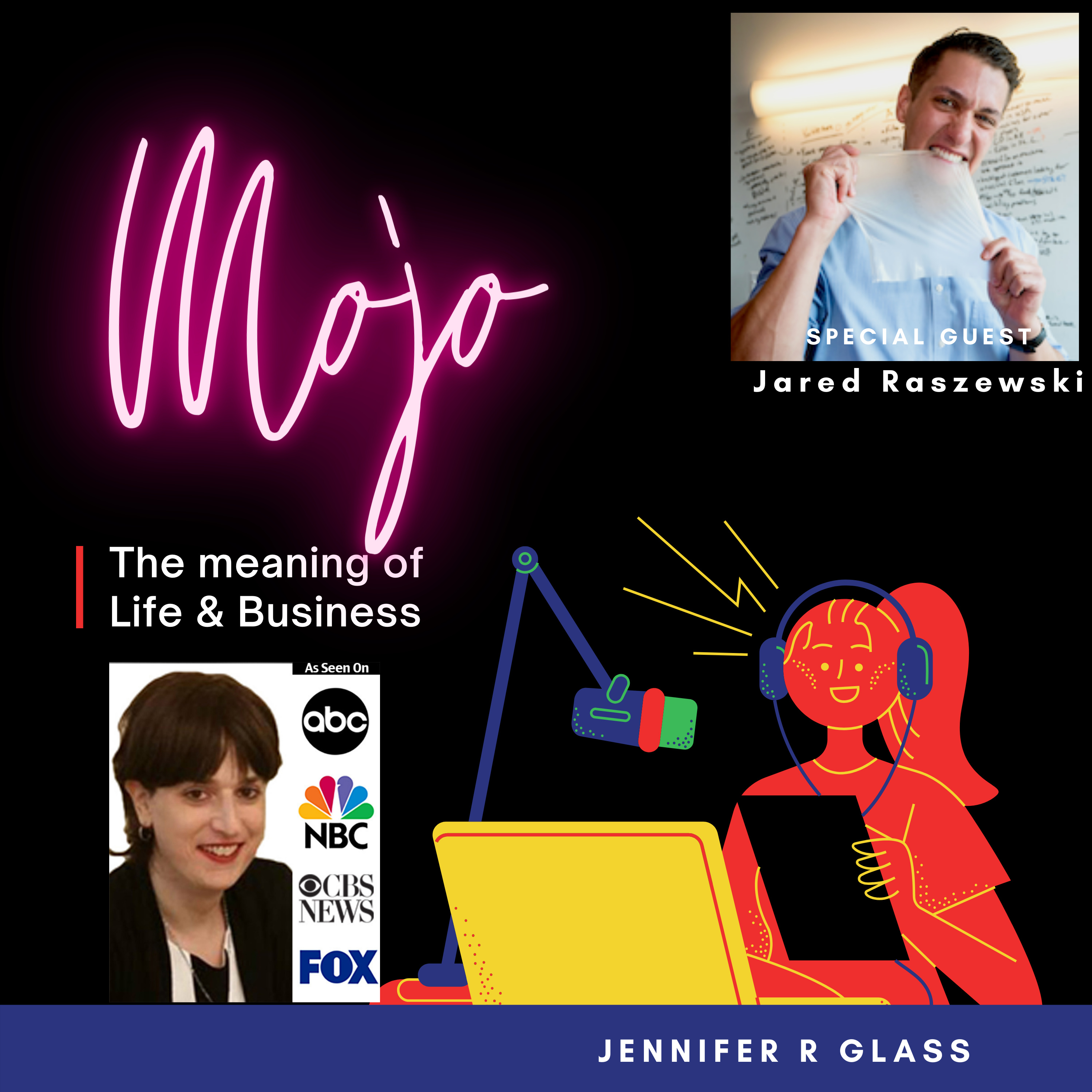
Transcript (automatically generated and may contain errors)
Hello, and welcome to another episode of mojo, the meaning of life and business on today’s program. We’re going to be talking about sustainability. Sustainability takes many different forms from protecting our environment, protecting our oceans, protecting the trees, protecting the air, protecting the drinking water that we have.
There’s so many different ways. We can look at sustainability in business. There’s green certifications. There’s so many different ways that businesses can use sustainability to their benefit on today’s program. I’ve got a guest too, has made sustainability all about where his business is. And we’re going to jump into how, uh, Jared makes sense.
Uh, sustainability stand out in his business. But before I bring Jared on, let me tell you a little bit about Jared. So Jared Raszewsju is the founder and CEO of this solves, which sells edible packaging that dissolves in water. He graduated from the university of Pittsburgh with a major in chemical engineering and minors in chemistry and economics.
While at Pitt, he led independent research into abusive edible biopolymers impacted. His research moved from the lab to his kitchen, and eventually grew into dissolve to solves is headquartered in Jared’s hometown of Pittsburgh. And his goal for the company is to produce a sustainable packaging that does not require consumers to compromise and functionality and convenience outside of work, Jared and enjoy is tending to his collection of cacti in tropical plants and taking long walks outside while listening to audio books, catch 22.
You may learn more about Jared and [email protected]. Jared, welcome to the program,
Jennifer. Thank you for having me. I’m really excited.
Absolutely. Thank you for coming on the program. So Jared let’s, uh, kind of jump into the conversation sustainability before we kind of get into anything else about the company and what you think.
What made you focus on sustainability in your business as a model for your business?
Yeah, I guess I really wanted to focus on something. So I feel like a lot of the times, if you buy more sustainable product, consumers will just assume that it’s either more expensive or harder to use, just because it’s better for the environment.
I really wanted to set out. Make sure that they understand that you don’t have to compromise and give up things. So it could be justice cheap and easy to use, but still be sustainable if it’s designed well.
That’s interesting. So let’s talk about your company to solve and the whole sustainability aspect in the packaging.
So you came up with this interesting way. Um, as your website says, nobody likes a big canisters of powder or what have you, uh, that so many of us grew up with when we were looking at drink mixes, how did you come up with the idea though of putting it into little packets that dissolve in water?
Yeah. So there’s definitely an inspiration from the laundry detergent, pods, or a dishwasher.
So we wanted to bring that into an equivalent into food, but it’s made with all-natural vegan ingredients, like, and it’s a seaweed-based packaging. So we ended up making an equivalent that people could feel safe eating. And I said, we use it for products like hot chocolate mix or instant coffee, where we put them in single servings and you just throw the whole pot in.
And so as you look at where you go from here, Do you have other uses potentially in mind for your, uh, pod, if you will, that you’re looking at.
Yeah, that’s actually one of my favorite parts of working on this offices. We sell it to other businesses. So we make the packaging and help them package third products and plots.
But you get to meet a lot of people. Talk to a lot of people. Everybody has their idea of pretty much four different products that they would like to see in a pod. So it’s always. Hear what people would prefer most, but we do mostly, we do a lot of vitamins and supplements, a lot of chocolate mixes, the coffee, protein powder, baby formula, things like that.
So usually we stick on outer products that you mix with water, but yeah, we were, I was excited to see new ideas and what people come up with and it sounds like a great model.
And are you looking eventually a possibly providing these pods? Maybe in a partnership or what have you, when I know that I’m kind of giving a business idea here, um, whether or not it’s something you actually thought about, but looking at areas where, um, natural disaster or other areas where there’s problems with food, or what have you, um, to be able to get those packaging pieces there, to allow that to happen.
Easier access to food, to nutritional pieces, things along those lines. Is that one of the things that you’re potentially looking at as you move forward? Yeah. It’s definitely something we would consider and I think it’d be having the right partner. So working with the people that put the right stuff into the pods and then helping them get that they’re easier, especially with natural disasters.
There’s not a lot of opportunity to appropriately dispose of I guess extra plastic packaging, so I could definitely see how it would help.
Right. And so that can be a great opportunity, you know, especially partnering with the right entities. Um, so let’s jump into your journey. I mean, first of all, your, um, college experience, majoring in chemical engineering, minor in chemistry and.
I mean, you were just, uh, one of those great students weren’t yet.
I guess it depends on who you ask, but I enjoyed it out. A lot of fun. I learned a lot, uh, you know, it was great. And then that’s kinda where it started to the idea came out of a product design course at the university of Pittsburgh. And then I really liked it.
Uh, so I started playing with it basically by myself, the kitchen, and then it rolled and tumbled until it became what it is.
And so as you look at where you got to at the moment, what actually inspired you and who inspired you to ultimately get to the point where you are right now?
That’s kind of hard to say.
I remember one day that was pretty pivotal was I watched the Steve jobs movie and I really felt like it was something similar. And then I said, I’m going to go out and do this. A lot of people inspired me in a lot of people out me along the way. Uh, especially at Penn, a lot of early mentorship from, uh, Mary Beth green and, uh, Randy eager and drag Tiki up.
It was very helpful to get started and, uh, supported me and kind of helped me see that I could do it even then.
And so as you look over the next couple of years, Where do you see yourself? You know, saying three years from now?
Yeah, I think it’ll be an thing. Most people will know it by then. You know, it’ll be in stores. I think it’ll be fairly common. Uh, we work with a lot of great partners now where I think it can get pretty broad pretty quickly.
And we’re ready to do that. I want it to be a kind of a household brand like. I got the Kleenex of tissues, something where you see what’s in that packaging, it’s a dissolve packaging, you know, that’s the good one. That’s the, that’s the one I want to get.
Okay. And as far as your entrepreneurial journey, are you one of those that are looking at just this one opportunity?
Are you one of those serial entrepreneurs? Concurrent, entrepreneurial.
Uh, I mean, I always have ideas from that happens naturally, but, uh, I felt so one thing at a time, so this is all I focused on now. I don’t want to get distracted or do anything, I guess we’ll have to see after this one goes, if we’re try to do it again, but I could definitely see both sides of that now.
Right. So, Jared, let me ask you, as we look into the future of sustainability and we look in the plastic bands as an example that are happening across the world, really here in New Jersey come may, all plastic bags, all paper bags, except for, uh, things that you’re basically putting fruits and vegetables in.
And couple of. You know, uh, cutouts of a law fuel or being banned in an effort to, uh, presumably protect the environment, how is what you are doing, going to help as more and more governments, whether it’s municipal governments or it’s. State national governments, as they look at their own, uh, bands on single use plastic things on those lines.
How is that going to make a difference with this solves in terms of what you’re doing and where that’s going to ultimately go in that journey?
Yeah. So, uh, I think overall that would probably be beneficial as long as it’s definitely pushing people away from the standard, uh, plastic vaccine. We used that.
Uh, I think there’s also be one small part of, a lot of solutions running into a ton of solutions to replace these products. People say plastic, but there’s different kinds of plastic with different molecular lengths and MOS everything’s tailor fit to each individual product. And we’re gonna have to recreate that, uh, more or less.
Without using plastic. So I think we’re definitely a small workplace, the saturates and things like that, but I think there’ll be different solutions for pretty much every use case.
And so there’s definitely a lot of opportunity then in terms of where your product can potentially fit in into the market. And that’s. When you can show companies where the value is in terms of having this packaging that is completely a dissolvable in water. Does it dissolve in anything else by the way, or is it just water that it dissolves in
water?
So really any, I guess, Polish. Uh, alcohol solutions, a lot of the solutions that people can save are most of the water anyway. So even if it was liquor, it’d be 60% water. I mean, milk. You’d definitely dissolve it in that’s like 96% water, so mostly water, but there’s other things that you could dissolve it in.
They just come up a lot of more rarely.
Right. And does it have to be hotter?
Uh, dissolves in hot air, cold water. So some of the edible fuckers, some cellulous, both films that can’t dissolve in hot water, but a few hot and cold and quickly.
Okay. So as we look at the future of sustainability and we look at all of the different opportunities that are out there, There’s so many different things that are still on the horizon. You said you want to eventually be known as the equivalent. You want to be that household name or the, uh, I got a Xerox, this, or I need a Kleenex or a band-aid, which are those, you know, just roll off the tongue.
I need a band-aid. You want to be that brand. And that’s huge. So let me ask you, as you’re looking at your journey and you look at where you want to go and what you’re doing, there’s a lot of people who are listening right now who may be thinking I don’t, I start even coming up with an idea that can potentially be that brand at some point.
What would you tell them in terms of your story? And what they can possibly do.
Yeah. I mean, for someone that wants to start, I would say just stuff start and then everything evolves with you. So we didn’t start out with this idea in its current kind of construction. We started out with a different idea and then we tried and tried and tried, and then anytime we hit a stumbling block, we would pivot and change and then get closer to what we’re supposed to be doing.
So I think the most important thing is just to. Tell people, your idea, you get their feedback and then make changes based on your target market. So make sure you’re asking the right people in your target market, what they’re looking for, and then iterate your idea until you get in line with that.
And that’s definitely great advice. You always, uh, like Jared was just saying, you have to make sure that you’re always listening to what your market is looking for in terms of knowing. Whether or not, your idea is going to have a chance at succeeding. If you don’t listen to the market, you may be selling something right now, but you don’t know that it’s going to salt tomorrow.
So you want to always be listening to what the market’s doing. You want to be looking at trends. You want to be looking at different areas because that’s really going to make a big difference in terms of what you do. Okay. As we wrap up our conversation on sustainability and we wrap up our conversation on dissolved.
Jared, how can people find out more about you?
Yeah. So you can go to dissolve thought net, D I S S O L V E s.net. And we have a lot of info there. There’s contact pages on. If you have a question or you want to reach out, just send an email or use the contact page and I’ll get back to you within 24 hours.
Thank you. And so think about sustainability in the way that you’re looking at business. There’s so many as we started the episode, so many different ways that you can be looking at sustainable. There’s different programs that you can get involved in, whether it is looking at energy reduction, looking at, uh, different green certifications.
Like we mentioned, looking at recycling, more turning lights off. There’s so many different ways that you can possibly be looking at sustainability. One of the things that we all want to be looking at. How are we going to be leaving this planet to the next generation? And the more that we can focus on sustainability in that regard, the more that future generations are going to have the same joys and beauty that we have right now in the planet.
So think about that as you continue moving forward. I want to thank you, Jared so much for being on the program again today. And. Absolutely. Thank you.
And until next time, this has been another episode of mojo, the meaning of life in business and here’s to your success.
About Jared: Jared Raszewski is the Founder and CEO of DisSolves, which sells edible packaging that dissolves in water. He graduated from the University of Pittsburgh with a major in chemical engineering and minors in chemistry and economics. While at Pitt, he led independent research into the use of edible, biopolymers in packaging. His research moved from the lab to his kitchen and eventually grew into DisSolves. DisSolves is headquartered in Jared’s hometown of Pittsburgh, and his goal for the company is to produce sustainable packaging that does not require consumers to compromise on functionality and convenience. Outside of work, Jared enjoys tending to his collection of cacti and tropical plants and taking long walks outside while listening to audiobooks (Catch-22 is his favorite).
You may learn more about Jared and DisSolves at dissolves.net and connect with Jared on LinkedIn at https://www.linkedin.com/in/jared-raszewski/

